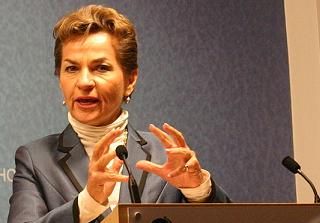First day of COP20 UN climate meeting tackles oil prices
Executive Secretary of the UNFCCC, Christiana Figueres addressed COP20 delegates and argued that falling oil prices show the “high risk” of fossil fuel investments compared with renewable energies

In the presence of 190 nations at the first UN Climate conference of the season on Monday, Christiana Figueres argues that falling oil prices show the “high risk” of fossil fuel investments compared with renewable energies.
At the UN Climate conference it was apparent that the flood of oil in world markets and the low cost of energy have encouraged countries to slow down their plans to invest in greener forms of energy.
Particularly after Brent crude reached its lowest level since October 2009 at a rate of $67.53 a barrel, the Union of Concerned Scientists, Alden Meyer said “It’s hard to tell what the total net impact will be here”.
However, the Executive Secretary of the UNFCCC, Christiana Figueres argues the opposite, “the fact that oil prices are so unpredictable is precisely one of the reasons we need to move to fuels which has a completed predictable cost of zero for fuel,” she said.
Christiana Figueres welcomed Germany’s top utility provider, E.ON decision to divide and disperse its power plants to clean energy and grid technology. “This is in tune with the many varied pieces of good news that we have had over the past three months,” she said, citing September’s move by the Rockefellers to eradicate $50 billion of oil, gas and coal investments.
“The world has changed when the Rockefellers decide they are going to divest.”
Policy officer at Climate Action Network (CAN) Europe, Maeve McLynn says: “If we are going to have a clean energy system by 2050 then funding should be stopped immediately and phased out completely by 2020 in the EU”.
Other experts said large fossil fuel exporters such as Russia and Saudi Arabia will be reluctant to make concessions at the climate talks if they notice that the fall in oil prices could slow down their investments in renewables.
Delegates in Lima are due to work out elements of a deal due to be agreed at a UN summit in Paris next year as part of a UN goal to limit average world temperature rises to 2 degrees (3.6 Fahrenheit) above pre-industrial times.
According to scientists global CO2 emissions need to peak this decade to ensure the world stays on a trajectory to limit warming to below 2C, beyond which the intensity of heatwaves, floods, droughts and rising sea levels could increase.






